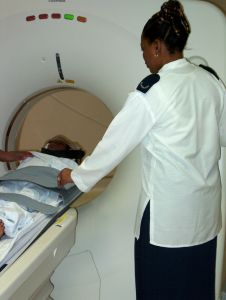
This is a continuation of my blog posts titled, The Standard of Care in Georgia for Diagnosis and Treatment of Ovarian Cancer ~ part 1 and part 2, and the following are some additional questions that should be asked in the Diagnosis and Treatment of Ovarian Cancer, and why each question is important:
6.) What was the Result of the Transabdominal/Transvaginal Ultrasound?
Why is this important? Transvaginal Ultrasonography (TVUS), when used as a sole screening intervention for high risk women, has not been effective in identifying early-stage ovarian cancer, so other tests should be performed accordingly and not just a TVUS regardless of the results and most certainly if the results if the TVUS indicate further testing in appropriate under the circumstances.
7.) Did the Clinician Recommend Scheduled Follow Up Evaluations?
Why is this important? Optimal follow-up for patients recovering from ovarian cancer must be individualized to the patient’s needs in much the same way as the treatment for other cancers is individualized to the patient’s needs and to the cancer itself for optimal results and to raise the survival rate.
8.) Was a Transabdominal/Transvaginal Ultrasound Recommended?
Why is this important? Transvaginal ultrasonography (TVUS), as stated earlier, when used as a sole screening intervention for high risk women, has not been effective in identifying early-stage ovarian cancer. There is not, at this time, one specific, reliable, easy to administer screening tool. A TVUS, however, should be recommended and performed and not overlooked so as to determine if other tests are in order as well.
9.) Which of the Following Studies were Performed?
Why is this important? A CAT Scan and/or MRI scanning may be used for assessing metastasis, and since the TVUS, as discussed above, has not been effective as the sole screening method, other methods such as a CAT Scan or MRI, coupled with other screening methods, should be performed to detect the cancer in its earliest stages.
10.) Was a Laparoscopy or Laparotomy performed?
Why is this important? For confirmation, the diagnosis of a pelvic mass ultimately requires an exploratory laparotomy.
11.) Was a Biopsy Performed?
Why is this important? A biopsy is required to determine the cell pathology and ultimately determine the treatment plan and prognosis. A biopsy should always be performed if there is a question of cancer since without the biopsy there is no way to know definitely that there is cancer present.
12.) Which of the Treatments were Advised?
Why is this important? If the treatment advised is not individualized and does not meet the needs of the patient or address the specifics of the cancer in that patient, then the treatment may be less, or not, effective, and the cancer will have a much better chance of spreading to other organs of the body outside the ovaries and, thereby, significantly reducing the patient’s survival rate.
For more information about Ovarian Cancer, the following resources may be helpful as well: The Clinics.Com, Gynecologic Onocology, and the UCL EGA Institute for Women’s Health.
If you or a loved one has been misdiagnosed or mistreated for Ovarian Cancer, then Contact Us today for your free consultation as we are experts in these types of medical malpractice cases.
Together, let’s continue to educate ourselves and our doctors so that one day there will be a reliable screening tool so that Ovarian Cancer is detected in the early stages, rather than in the late stages, and so women have a better chance of survival and beating this deadly and silent killer.